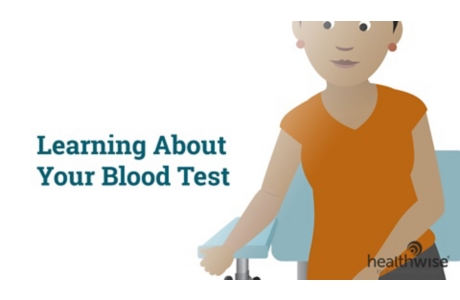Test Overview
An HIV test detects HIV antibodies or antigens or the genetic material (RNA or DNA) of HIV in the blood or another type of sample. This can show if an HIV infection is present (HIV-positive). HIV infects certain white blood cells. They are part of the body's immune system that help fight infections.
Most doctors use a blood test to screen for HIV infection. If the test is positive (meaning that HIV antibodies or antigens are found), a test to detect HIV RNA or DNA will be done to be sure. Sometimes an RNA or DNA test is done at the same time as the first test.
If you think you were recently exposed to HIV, tell your doctor. You may need an RNA or DNA test. Or you may need to be tested again. This is done to make sure that HIV RNA, DNA, antibodies, or antigens don't appear at a later time.
Home tests are available. Follow the instructions carefully. If the result is positive, talk to a doctor as soon as you can. If the result is negative, the test instructions will tell you whether you should repeat the test and when to do it.
Why It Is Done
An HIV test is done to:
- Detect an HIV infection.
- Screen blood, blood products, and organ donors to prevent the spread of HIV.
- Screen people who are pregnant for HIV infection. If you're pregnant and have HIV, getting treated early can prevent your baby from being born with HIV.
- Find out if a baby born to someone who has HIV is infected with HIV.
This test is not done to find out if a person has AIDS. A diagnosis of AIDS means that a person is HIV-positive and other problems are present.
How To Prepare
In general, there's nothing you have to do before this test, unless your doctor tells you to.
How It Is Done
A health professional uses a needle to take a blood sample, usually from the arm.
Watch
How It Feels
When a blood sample is taken, you may feel nothing at all from the needle. Or you might feel a quick sting or pinch.
Risks
There is very little chance of having a problem from this test. When a blood sample is taken, a small bruise may form at the site.
Results

Normal (negative)
- No HIV antibodies, antigens, or RNA were found.
- You may need more testing. It can make sure your test results are correct.

Uncertain (indeterminate)
- Test results didn't clearly show if you have an HIV infection.
- HIV antibodies or antigens may not have formed yet.
- Some other type of antibody or antigen may have affected the results.
- You will need another test to be sure.

Abnormal (positive)
- HIV antibodies, antigens, or RNA were found.
- If you haven't had an RNA test yet, one will be done. If it's positive, you have HIV.
- If your test result is positive, your doctor will talk to you. You will discuss starting treatment.
Related Information
Credits
Current as of: June 12, 2023
Author: Healthwise Staff
Clinical Review Board
All Healthwise education is reviewed by a team that includes physicians, nurses, advanced practitioners, registered dieticians, and other healthcare professionals.
Current as of: June 12, 2023
Author: Healthwise Staff
Clinical Review Board
All Healthwise education is reviewed by a team that includes physicians, nurses, advanced practitioners, registered dieticians, and other healthcare professionals.



